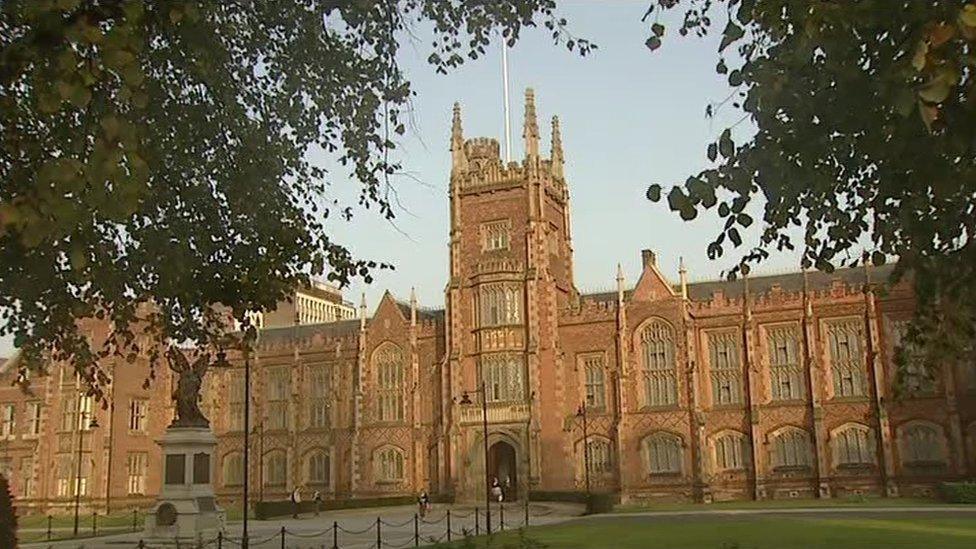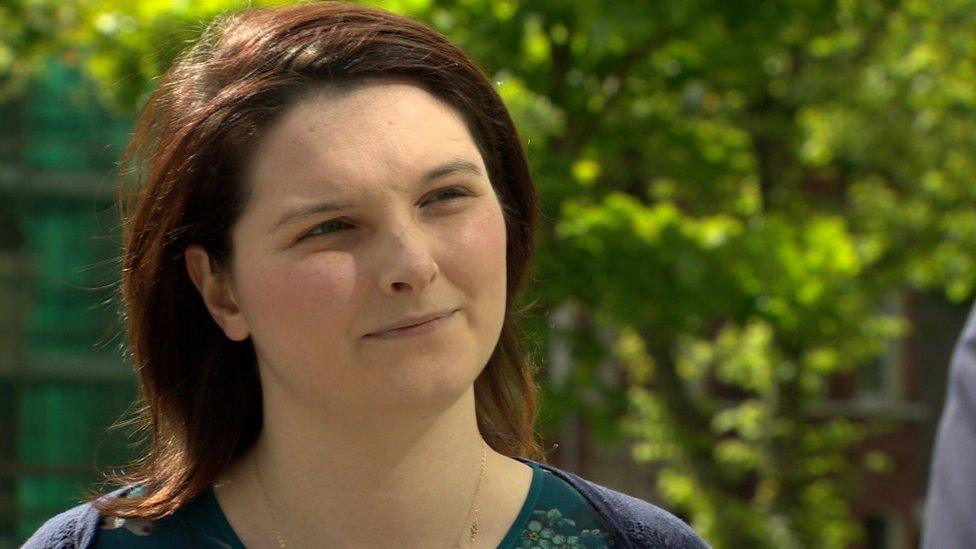'169 sex attacks' reported by QUB students
- Published

The survey by Queen's University, Belfast, is the first of its kind in Northern Ireland
Almost 170 students at Queen's University, Belfast (QUB) said they had been sexually assaulted, according to a survey conducted at the university.
A further 246 students said that they had been the victim of an attempted sexual assault.
The findings are revealed in the Student Consent Research Collaboration (SCORE) 'Stand Together' report.
Almost 3,100 students, 12.5% of QUB student population, answered the survey into non-consensual sexual experiences.
'Penetrative assault'
The results of the survey, that was carried out in 2016, have just been released.
Almost 6% of respondents - 169 - said they had experienced "at least one episode of sexual penetrative assault".
The vast majority of students who reported that experience - 85.8% - were female and three-quarters of them said they knew the perpetrator.
Despite this, fewer than 5% said they had reported it to the PSNI.
About one third of the 3,100 respondents said they had experienced "unwanted touching of a sexual nature".
One in 10 said they had "received unwanted media images of genitals".
Just over 2% of respondents also said that sexual photographs of themselves had been shared without their permission.
'No victim-blaming'
The survey also suggested strong links between drinking alcohol to excess and non-consensual sexual experiences.
Over two-thirds of those who reported being sexually assaulted, for instance, said they had been intoxicated, while almost 60% said the perpetrator was intoxicated.
The report's authors said that while that indicated "strong links between alcohol usage and the occurrence of sexual assault," this should not be interpreted as "victim-blaming".
The Stand Together survey was an online survey carried out among QUB students throughout February and March 2016.
It asked respondents a series of 24 questions about their experience of sexual violence and consent while at QUB.

Eimear Haughey said there was a lack of clear understanding around sexual consent
While the survey was self-selecting, it is the first of its kind to be carried out in Northern Ireland.
The number of respondents was also significantly higher than similar previous surveys carried out at Edinburgh University and Cambridge University.
About two thirds of respondents were female and one third were male.
'Workshops on consent'
Its authors have called for better education on sexual consent, including better relationships and sexuality education (RSE) in schools.
They have also called for it to be made easier for victims to report allegations to the university authorities and improved support for survivors.
Eimear Haughey, the founder of SCORE, said there was a lack of clear understanding around sexual consent in Northern Ireland.
"Young people deserve a level of education about consent which would allow them to know what sexual assault is and if it has happened to them," she said.
"This is the beginning of a journey to improve support for survivors of sexual violence, enhance young people's understanding of sexual consent and ultimately lower the rates of sexual crimes."
"This is the first step to building a safer society for all, and this work must be continued."
The Students' Union at QUB also plans to offer "educational workshops" on consent when the new university term begins in October 2017.
However, these will not be compulsory.
The 'Stand Together' survey was student-led, but was overseen by an advisory board.
The board included QUB academics and external organisations such as the Public Health Agency, Nexus NI, the Belfast Health and Social Care Trust and the Rowan sexual assault referral centre.
- Published7 May 2014
